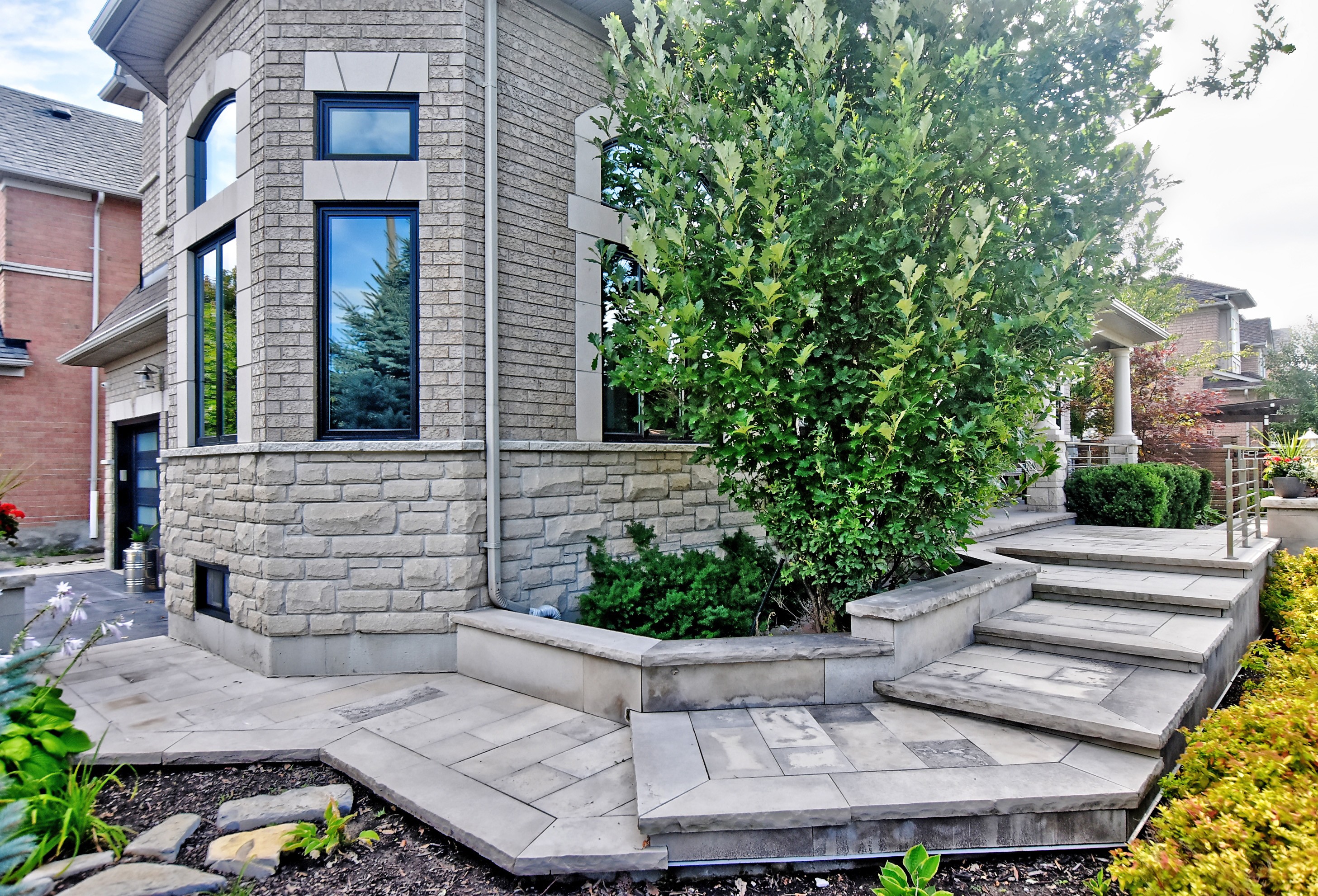
Energy Efficient Windows
How to Get Rid of Musty Smell in Basement: Best Solutions
While a musty smell in the basement is definitely unpleasant, it indicates a much bigger problem, usually mold growth, that can seriously affect your health and even cause structural damage. Thankfully, you won't be stuck with that musty smell forever. There are multiple measures you can take, and if nothing works, you can seek professional help.
As such, how to get rid of musty smell in basement? Let's find out! But first, let's see what causes it.
Key Takeaways
- Identify and eliminate the root cause of the musty smell. Musty odors are usually caused by mold, which thrives in damp, dark, and poorly ventilated areas. Start by inspecting for moisture sources like leaks, condensation, or poor ventilation, and address them directly.
- Improve ventilation, light, and humidity control. Use dehumidifiers, increase airflow with better ventilation, and let in as much natural light as possible to make your basement less hospitable to mold and mildew.
- Upgrade windows and seal problem areas. Installing modern, energy-efficient basement windows (like Magic’s) helps prevent moisture buildup, improves insulation, and allows for better airflow and light, making it easier to keep your basement dry and fresh-smelling long-term.
What Causes that Musty Smell in the Basement?
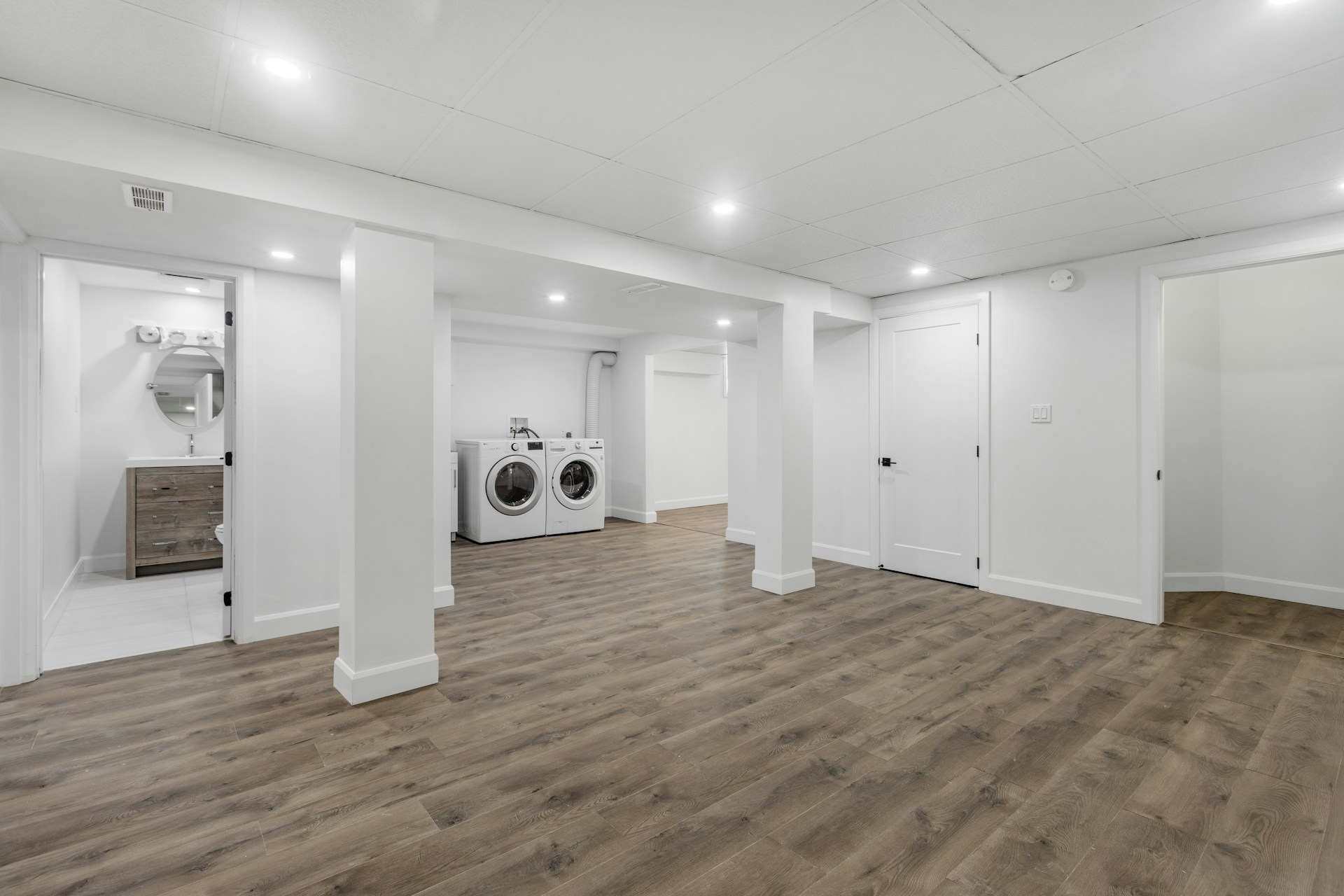
That distinctive musty smell in the basement is most often caused by mold growth. Mold spores travel through the air until they land on a damp environment that is free of light and ventilation. And they start to multiply. If there is a leak, mold can grow on extensive areas in only 24 hours!
However, mold spores also need food to thrive. They feed on organic materials, like fabric, paper, dust, and wood. Because of this, mold spores often attach to dusty surfaces, walls (especially when humid air condenses on cold walls), ceilings, and carpets. After mold spores attach themselves to these organic materials, they release microbial volatile organic compounds (mVOCs). These are gases that create that characteristic musty odor.
Identifying the Source of Musty Basement Smells
While the musty smell can be caused by mold growth, the mold itself is caused by a different issue, which is why it's not enough to simply get rid of the mold. For example, moisture problems can be linked to:
- Water leaks
- Condensation on windows, doors, and walls
- Drying clothes in the basement
- Poorly sealed basement walls
- Lack of proper ventilation
Therefore, the first step in getting rid of the musty smell in the basement is finding the source of the problem.
1. Find the Source
Start by inspecting your basement thoroughly:
- Check the corners
- Check behind furniture
- Inspect the windows
- Inspect the walls near appliances
- Look for visible mold, damp spots, water stains, or efflorescence (white powdery deposits on walls)
- Pay attention to crawl spaces, sump pump areas, or anywhere water might collect
You can use a moisture meter or call a professional team to inspect your basement. They can identify hidden dampness behind walls or under floors.
2. Reduce Moisture Levels
Basements are naturally prone to dampness, so it's vital to control high humidity. In this regard, a dehumidifier is the best. It can help you keep indoor humidity below 50%. Also, make sure to buy a condensate pump and connect it to the dehumidifier to avoid having to empty it every few hours.
Also, consider using moisture-absorbing materials, like silica gel or activated charcoal, in areas that tend to stay damp. It may also be worth it to install a vapor barrier if there isn't one already. It will prevent moisture from seeping in.
Additionally, don't forget that as long as the basement is cool and the upper levels have a warmer temperature, water droplets will form when the warmer air meets the cooler air in the basement.
3. Remove or Deep Clean Soft Furnishings and Stored Items
Stored upholstered furniture, old carpets, books, and clothing can absorb and hold on to musty odors, especially if they were exposed to moisture in the past.
Therefore, remove or deep clean these items. For soft items like cushions, consider using fabric-safe odor neutralizers or professional cleaning services.
4.Clean Mold and Mildew
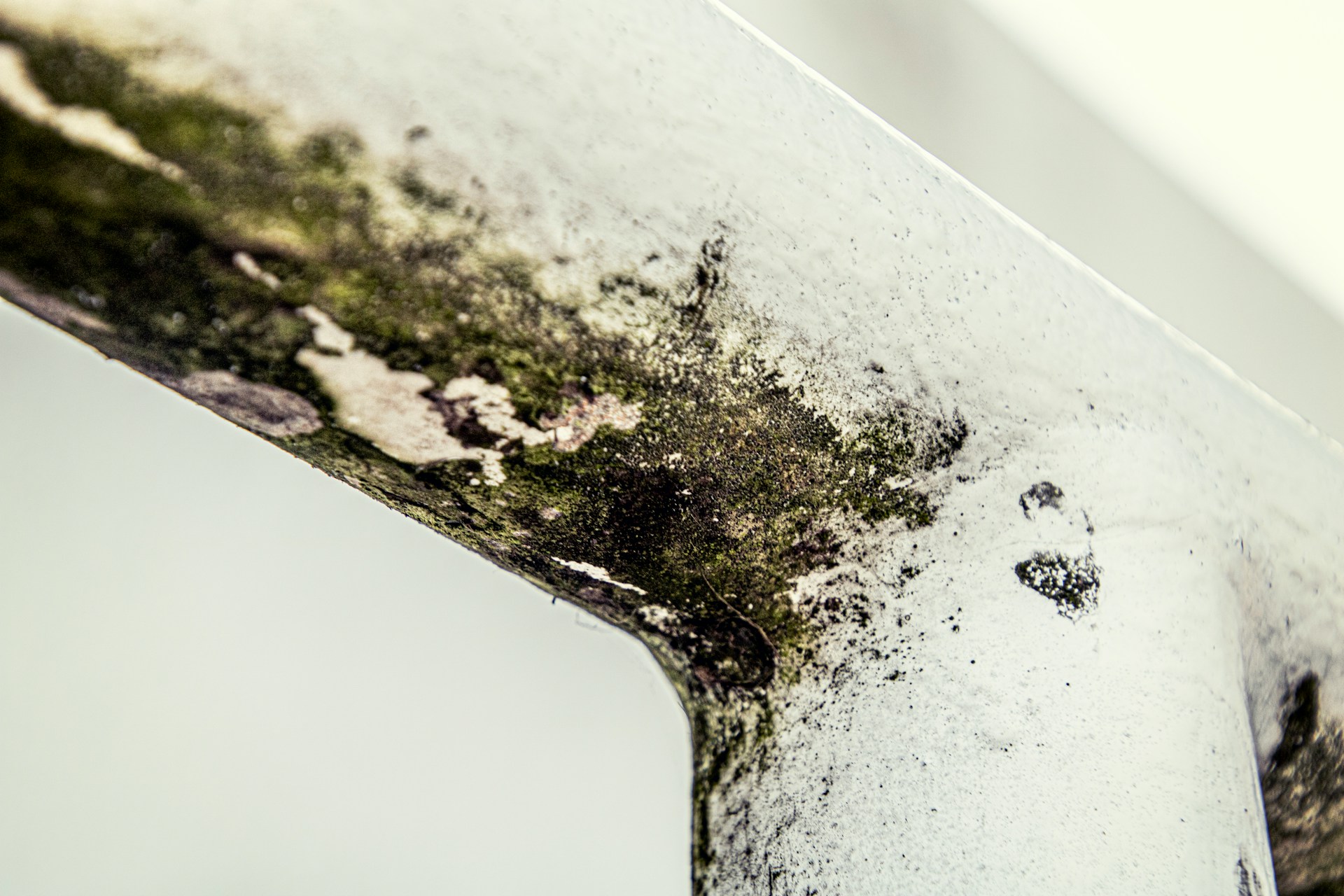
If you've identified mold/mildew spots somewhere in your basement, you have to remove them right away. Mold can grow quickly, sometimes as quickly as 24 hours in proper conditions. Besides the unpleasant mildew smell, mold and mildew can affect your house's structural integrity.
For smaller areas of mold and mildew, you can use a solution of white vinegar. Open windows during use to ensure proper air circulation and prevent fume buildup. And remember, never mix vinegar and bleach together as this can cause harmful reactions.
For areas larger than 10 square feet or severe mold issues, you should hire a professional mold remediation specialist. They can remove the mold safely and effectively, as well as address the root causes of the problem. Professional cleaning services can also help with carpets or upholstered items affected by mold.
For a more comprehensive guide on this topic, you can check our article on removing mold around windows.
5. Improve Ventilation
Ventilation is probably the best method to get rid of musty smell in the basement. It won't deal with the source directly (it won't make the mold disappear, for example), but it will help make your basement less suitable for mold growth.
Firstly, it's recommended to install basement windows that open fully, especially if they are small. Casement windows, for example, are perfect if there is enough wall space. If there isn't enough space for a casement window, you can install an awning window. If you have a window well, make sure that its cover is not made from plastic; otherwise, you won't be able to ventilate your basement.
Additionally, if your basement is connected to your HVAC system, ensure that the vents are open and clean. You can also add return vents or an air exchanger to draw fresh air in and push stale air out. If possible, install ceiling or box fans.
6. Enhance Natural Light
Mold and mildew thrive in darkness, so it's best to maximize natural light if possible. Avoid heavy window treatments that block natural light and, if possible, install windows with thin frames like those from Magic.
Additionally, you can paint the walls white or cream and install reflective surfaces like mirrors to help bounce light around the room.
7. Install High-Quality, Properly Sealed Windows
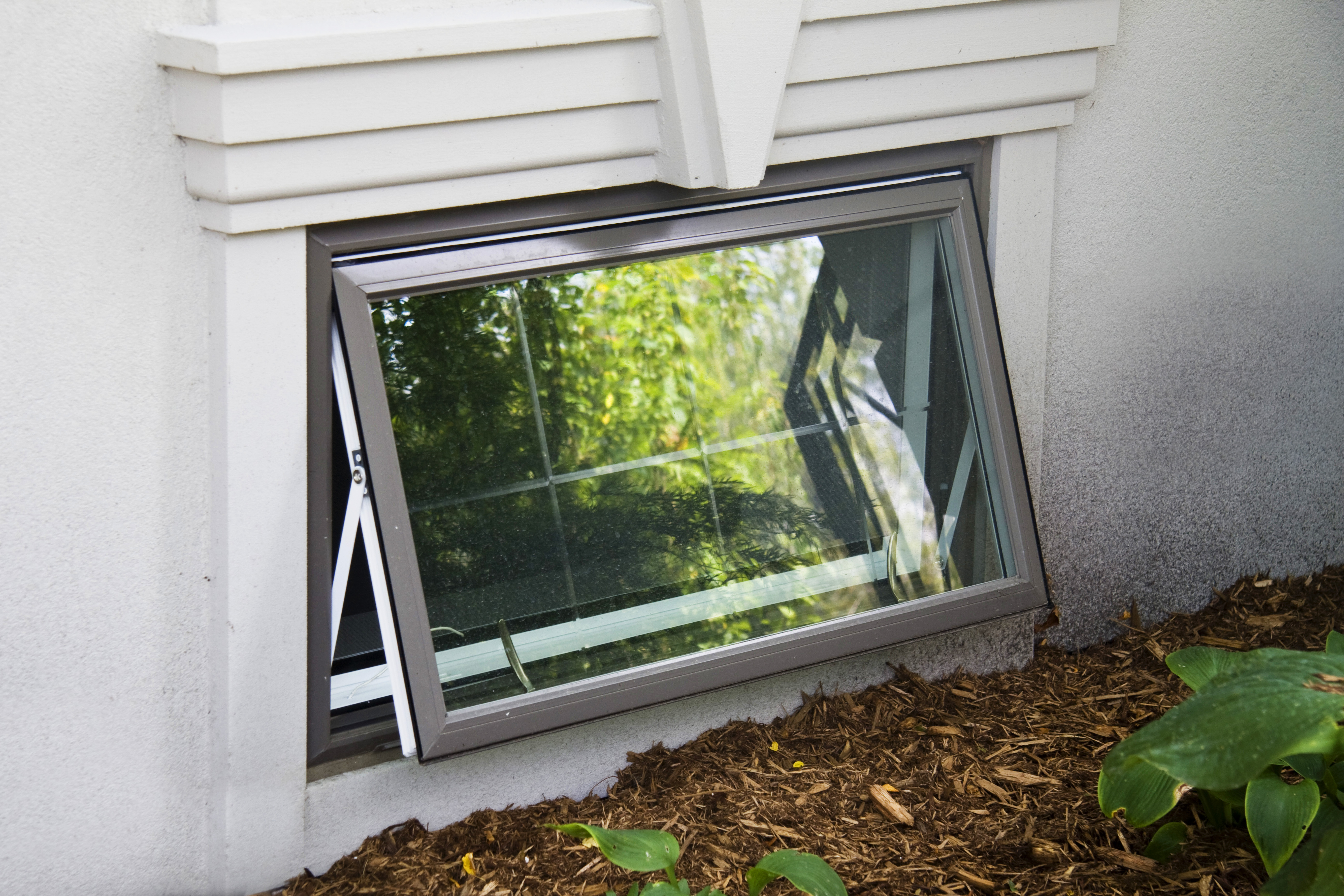
Leaky or outdated windows are a major source of moisture and drafts, which means that they can significantly contribute to condensation, mold growth, and thus musty basement smells.
In this case, it's best to replace old basement windows with double- or triple-paned, energy-efficient models. Furthermore, your brand-new windows need to be installed correctly, meaning they need to be sealed properly to truly provide superior insulation and prevent water intrusion and mold growth.
8. Seal Your Sump Pump
If there's a musty smell in your basement, an unsealed sump pump pit could be the culprit. Here's why:
- Moisture and humidity: an open sump pit constantly exposes the basement to moisture from groundwater, which raises humidity levels, a perfect condition for mold growth and musty odors. Sump pumps are also often full of smelly, standing water.
- Airborne mold spores and mVOCs: mold can grow inside or around the sump pit and release mVOCs (microbial volatile organic compounds), which escape into the air and contribute to that damp, musty smell.
- Sewer or earthy basement odors: in some cases, if the sump pit connects to a drainage system or collects debris, it may emit unpleasant odors not related to mold but still unpleasant.
Sealing the sump pump with an airtight cover helps control humidity, prevent the spread of odors, and block mold spores from circulating in the basement air.
9. Address Any Water Leaks
Even minor leaks that you may not even notice can lead to chronic dampness and a persistent musty odor. As such, inspect pipes for plumbing leaks, water heaters, washing machines, and HVAC condensate lines. Check exterior drainage too: gutters should direct water away from the foundation, and the ground should slope away from the house, so that the water flows away rather than towards your house.
Furthermore, make sure to check any cracks and gaps around window frames and on the walls and fill them with caulking or a joint compound.
And don't forget about the basement window well! It needs to have a proper drainage system to avoid water accumulating in it and then seeping into your basement through wall cracks and poorly sealed windows.
If you suspect there is a leak but can't identify it, seek professional waterproofing help as soon as possible. Experts can address leaky basement problems by assessing underlying issues and providing long-term excess moisture protection. Solutions may include interior or exterior drainage systems, advanced waterproofing membranes, and sump pumps.
10. Clean and Maintain the Basement Regularly
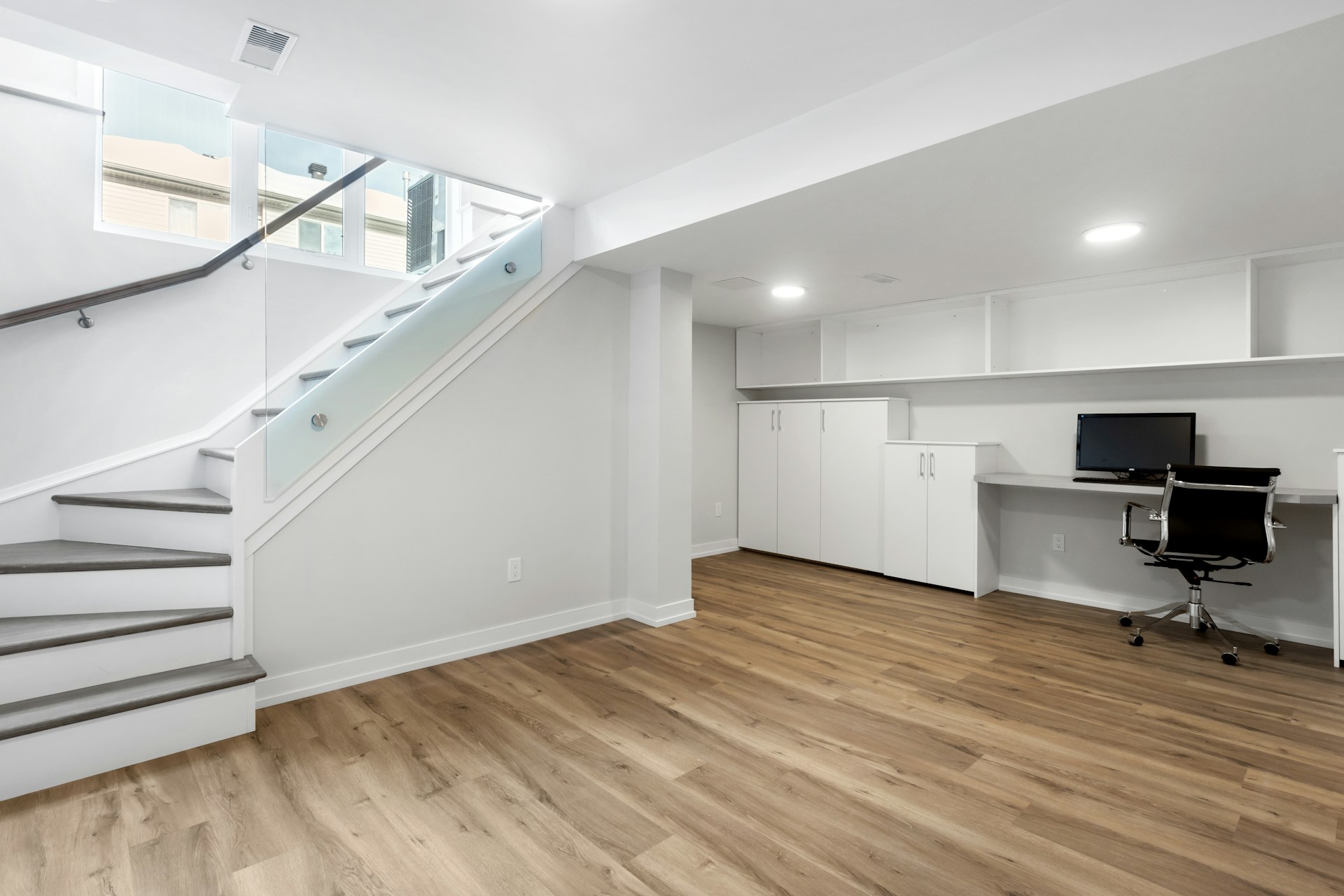
Even if you do manage to get rid of the musty smell in your basement and the factor that causes it, the smell will return quickly without regular, thorough cleaning.
Therefore, clean floors, windows, and surfaces regularly. Make sure to remove clutter that can trap moisture or block airflow. Moreover, vacuum with a HEPA filter to remove mold spores and allergens. If you store items in the basement, use plastic bins instead of cardboard, because the latter absorbs moisture. And periodically inspect for new signs of moisture or mold so you can act quickly before a problem escalates.
11. Additional Tips
- Use air purifiers. HEPA air purifiers can help eliminate basement odors and allergens and capture mold spores from the air.
- Paint with mold-resistant paint. If you’re finishing your basement, use paint with mold inhibitors on walls and ceilings.
- Seal concrete floors and walls. Concrete is porous and can hold moisture; sealing it reduces this risk.
- Add a basement-specific thermostat. Maintaining a consistent temperature helps discourage condensation and mold growth.
- Install a hygrometer to continuously monitor humidity levels.
- Use odor- and moisture-absorbent materials like baking soda or activated charcoal. You can place bowls of baking soda in different locations around the basement. Replace them regularly. You can also place activated charcoal in open containers and replace it every few weeks.
- If your basement has a bare concrete floor, it's best to paint it, because it can also emit an odor.
- You can also place containers filled with a mix of vinegar and water or containers filled with ground coffee. Both are known to neutralize odors caused by high humidity.
Tried Everything? Does Your Basement Still Smell Musty?
If you've already:
- Identified and removed mold,
- Fixed water leaks,
- Improved ventilation,
- Sealed the sump pump,
- Used a dehumidifier,
…and your finished basement still has an unpleasant odor, here’s what to do next:
- Inspect hidden or inaccessible areas: check behind walls, under flooring, in insulation, or inside HVAC ducts. Musty basement smells often come from mold in places that aren’t immediately visible.
- Hire a mold inspector: a professional can use tools like moisture meters, thermal imaging, and air testing to find hidden mold or moisture problems you can't detect on your own. This can help prevent health issues and structural damage.
- Test indoor air quality: persistent musty basement smells might come from non-mold sources like decaying materials, sewer gas, or bacteria in drain lines. Air quality tests can reveal elevated MVOC or VOC levels and help pinpoint the source.
Install Magic Windows to Keep Your Basement Fresh!

One of the most effective ways to fight musty basement smells in your basement is to improve natural light, airflow, and insulation. And that's exactly where Magic windows shine! Upgrading old, leaky, or poorly insulated basement windows with Magic’s advanced window systems offers multiple benefits beyond just aesthetics, which we'll discuss below.
1. Slim Frames That Maximize Natural Light
Basements are notoriously dark, and low-light environments serve as the perfect breeding grounds for mold. Magic windows feature ultra-slim frames, which means more glass, less frame, and a significantly higher amount of natural light entering the space.
2. Energy-Efficient Design That Controls Moisture
Musty smells often stem from temperature imbalances and condensation. Magic windows are available in double- and triple-glazed options, with low-E coatings and thermal spacers that prevent drafts and reduce condensation on glass, a common cause of moisture buildup on older windows. That means a more stable indoor climate and fewer conditions for mold to grow.
3. Retractable Bug Screens That Don’t Block Light
Traditional window screens can darken a room and block airflow. Magic’s retractable bug screens are hidden when not in use, so they don't interfere with light or ventilation. You can easily pull them out when needed, then slide them back into place, maintaining both a clean look and full functionality.
4. Easy, Smooth Operation for Consistent Ventilation
Old basement windows can be stiff, jammed, or poorly designed for regular use. This makes it hard to keep the area ventilated. Conversely, Magic windows are engineered for smooth, effortless operation. You can easily open them wide for fresh air circulation, then securely seal them when you’re done.
Plus, since we've brought glass production in-house, we work with different window shapes and sizes, so we can customize your windows based on how much wall space you have in your basement.
Frequently Asked Questions
How do I permanently get rid of the musty smell in my basement?
To permanently get rid of the musty smell in your basement, identify and fix the moisture source. Then, remove any mold, improve ventilation, make sure your basement gets plenty of natural light, and prevent future humidity issues by using dehumidifiers and installing properly sealed, energy-efficient windows.
Will a dehumidifier get rid of musty smell?
A dehumidifier can help get rid of the musty smell because it reduces humidity and prevents mold growth. However, a dehumidifier won't remove the existing mold, which can continue producing the unpleasant smell.
Why does my basement smell musty?
If your basement smells musty, there is likely some mold growth in there. It is usually caused by leaks, condensation, or high humidity.
What kills the smell of mold and mildew?
The smell of mold and mildew can be neutralized by removing the mold itself using cleaners like vinegar or professional remediation services, improving airflow, and using odor absorbers like baking soda, activated charcoal, or HEPA air purifiers.
How can I clean mold and mildew in my basement?
To effectively clean mold and mildew in your basement, use a mixture of bleach and water or white vinegar for small areas. However, for larger infestations, it is advisable to hire a professional mold remediation specialist.
What is the best way to reduce humidity in my basement?
Installing a dehumidifier is the best way to effectively reduce humidity in your basement, maintaining levels between 30% to 50% to prevent mold and mildew growth.
How can I improve air circulation in my basement?
To enhance air circulation in your basement, use fans, open windows when possible, and run your home's furnace system. You can also use HEPA filter air purifiers to prevent or address mold problems and keep your basement smelling fresh.